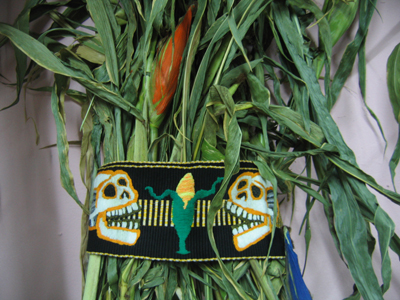
Cuerpo, casa, madre Tierra
Body, Home, Mother Earth
Tipo de producción/Type of Production
Documental/Documentary
Año de producción/Production Year
2006
País/Country
México
Duración/Running time
84:38 min.
Producción/Production
Dirección/Director
Lilly Wolfensberger Scherz
Producción/Producer
Lilly Wolfensberger Scherz
Guion/Screenplay
Lilly Wolfensberger Scherz
Fotografía/Cinematography
Lilly Wolfensberger Scherz
Edición/Editing
Lilly Wolfensberger Scherz y Raúl Saldana
Lilly Wolfensberger Scherz
Producción/Producer
Lilly Wolfensberger Scherz
Guion/Screenplay
Lilly Wolfensberger Scherz
Fotografía/Cinematography
Lilly Wolfensberger Scherz
Edición/Editing
Lilly Wolfensberger Scherz y Raúl Saldana
Sinopsis/Synopsis
Convivir con la naturaleza es un arte; un arte de vivir que las comunidades tutu naku practicaban con conciencia y, cuando descubrieron como conjugar sus ingeniosas prácticas agrícolas con la bondad de los ecosistemas, fue aflorando un dialogo mítico con la madre Tierra que aún nutre su espiritualidad. Sin embargo, hoy en día, las mujeres tute naku, tejedoras de las tradicionales fajas que protegen simbólicamente su poder reproductivo, tienen aún una preocupación más. La erosión cultural y el uso de agro-químicos amenazan a muchas especies y sobre todo a la milpa. En un proceso de reflexión y concientización acerca de su sagrado alimento, las tejedoras decidieron consagrar sanación al maíz que está en peligro. Con sus manos creadoras tejieron fajas en protesta contra el maíz transgénico que pone en riesgo a las razas del maíz criollo. Efectivamente, el concepto de la sustentabilidad está desde milenios integrado a las prácticas cotidianas que se celebraban y se siguen practicando todavía en la etnia tutu naku. Actualmente, los centros más avanzados de la investigación científica en el mundo reconocen que los pueblos indígenas son los creadores de la ciencia concreta y que es necesario el dialogo entre los científicos y la gente indígena para compartir los conocimientos y luchar contra la destrucción ambiental.
To co-exist with nature is an art; an art of living that the tutu naku communities of the Northern Highlands of Puebla practiced conscientiously for centuries and when they discovered how to conjoin their ingenious agricultural practices with the benevolence of the ecosystems, a mythical dialogue blossomed with Mother Earth, that continues to nourish their spirituality. But, nowadays, the tutu naku women the weavers of the traditional fajas that symbolically protect their reproductive powers- have yet another concern. Cultural erosion and the use of agro chemicals threaten many species and in particular, the traditional corn field. During a process of reflection and consciousness raising about their sacred food, the women weavers decided to dedicate a healing to the endangered corn. The concept of sustainability is, in fact, an integral part of the daily customs that the tutu naku people have practiced for thousands of years and continue practicing in the present day. The worlds most advanced scientific research centers now acknowledge indigenous people as the inventors of concrete science and recognize the need for a dialogue, a sharing of knowledge, between scientists and the indigenous peoples to fight against environmental destruction.
To co-exist with nature is an art; an art of living that the tutu naku communities of the Northern Highlands of Puebla practiced conscientiously for centuries and when they discovered how to conjoin their ingenious agricultural practices with the benevolence of the ecosystems, a mythical dialogue blossomed with Mother Earth, that continues to nourish their spirituality. But, nowadays, the tutu naku women the weavers of the traditional fajas that symbolically protect their reproductive powers- have yet another concern. Cultural erosion and the use of agro chemicals threaten many species and in particular, the traditional corn field. During a process of reflection and consciousness raising about their sacred food, the women weavers decided to dedicate a healing to the endangered corn. The concept of sustainability is, in fact, an integral part of the daily customs that the tutu naku people have practiced for thousands of years and continue practicing in the present day. The worlds most advanced scientific research centers now acknowledge indigenous people as the inventors of concrete science and recognize the need for a dialogue, a sharing of knowledge, between scientists and the indigenous peoples to fight against environmental destruction.
Formato/Format
DVD
Locación/Location
Sierra Norte de Puebla (México)
Premios/Awards
·Premios Mención honorifica del III Festival de Cortometraje El Cine a las Calles, México 2007
Contacto/Contact
Lilly Wolfensberger Scherz
Carmen 15
Col. San Bernabé Ocotepec
CP 10300, La Magdalena Contreras, Ciudad de México
Tels.: (52-55) 2176 9637
lilly2tusig@yahoo.com
Carmen 15
Col. San Bernabé Ocotepec
CP 10300, La Magdalena Contreras, Ciudad de México
Tels.: (52-55) 2176 9637
lilly2tusig@yahoo.com
¿Detectaste algún error en este registro?
Fecha de última modificación: 7 de marzo del 2017, 17:07
Información proporcionada por:
Red Nacional de Información Cultural
Instituto Mexicano de Cinematografía
u-cm
Información proporcionada por:
Red Nacional de Información Cultural
Instituto Mexicano de Cinematografía
u-cm
